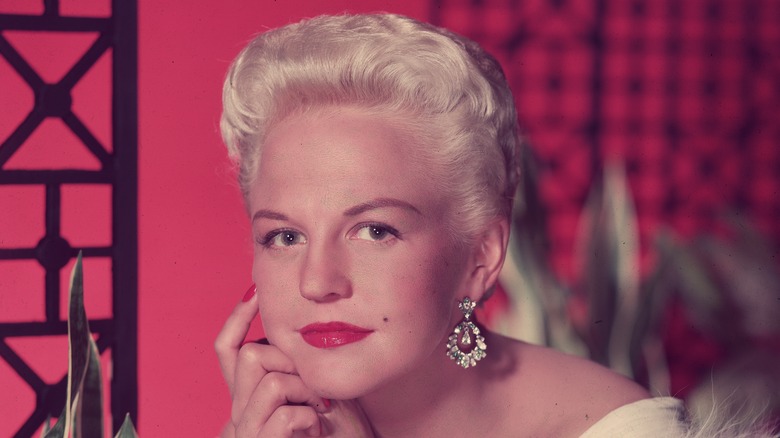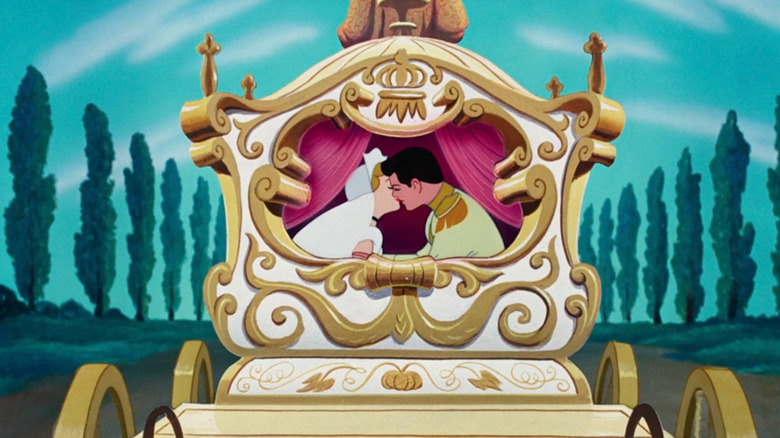What Sparked Peggy Lee & Disney's Real-Life Legal War Over 1955's Lady And The Tramp?
It was perhaps no surprise to anyone that the Disney animated classic "Lady and the Tramp" was a huge success when it hit home video in 1987. When the film initially debuted in theaters in 1955, it became the studio's biggest hit since the monumentally successful "Snow White and the Seven Dwarfs." What many weren't expecting, however, was that one of the film's key contributors would come out of the woodwork to challenge Disney head-on.
"Lady and the Tramp" became one of the best-selling VHS of all time with over 3 million copies sold in the late '80s and $100 million in profits. Actress and singer Peggy Lee, who was allegedly only paid about $4,000 to provide the voices of four characters and co-write six of the film's songs, took the Mouse House to court in 1988 after they refused to provide her royalties. Lee's 1952 contract claimed that any "transcriptions" made for sale would need her approval. The company argued that the term was likely referring to audio discs made for radio broadcasting, since no one at the time could have predicted the emergence of home media.
Lee's lawyer, David Blasband, discovered a 1968 Disney case where the company sued Alaska Television Network for airing their films without permission where they utilized the term "transcription" to describe a copy, meaning that the term could be carried on to the film itself. As a result, Lee won the dispute and was rewarded $2.3 million in 1991. However, the impact of her victory over the mega corporation would be priceless.
Lee's success encouraged other classic Disney stars to take action
Peggy Lee's triumph in court over a goliath like Disney sent shockwaves through the industry as more Golden Age actors and their estates began taking into account the major revenue being brought in by the VHS industry. More specifically, it got other stars from Disney's classic era to start thinking about taking their own actions against the home media market.
Two classic Disney voice actresses also tried receiving their rightful share of Disney's lucrative VHS sales. In 1989, Mary Costa, the voice of Princess Aurora in 1959's "Sleeping Beauty," demanded $2 million in royalties from the film's 1986 VHS release. The case ended up being settled out of court in 1991, where it was left unknown as to what the final terms were. Costa's lawyer, Christopher Larmoyeux, suggests that the deal went well, telling Associated Press, ″It was a fair deal for Mary and it was a fair deal for Disney, when you look around the table and see everybody gave up something and everybody got a little something."
In 1990, Cinderella voice actress Ilene Woods would file a lawsuit against Disney seeking $10 million for contract breach and another $10 million for royalties from VHS sales. However, it remains unknown if her lawsuit was settled. Regardless of these new changes, these Disney starlets weren't going to let their happily ever afters be taken away.

